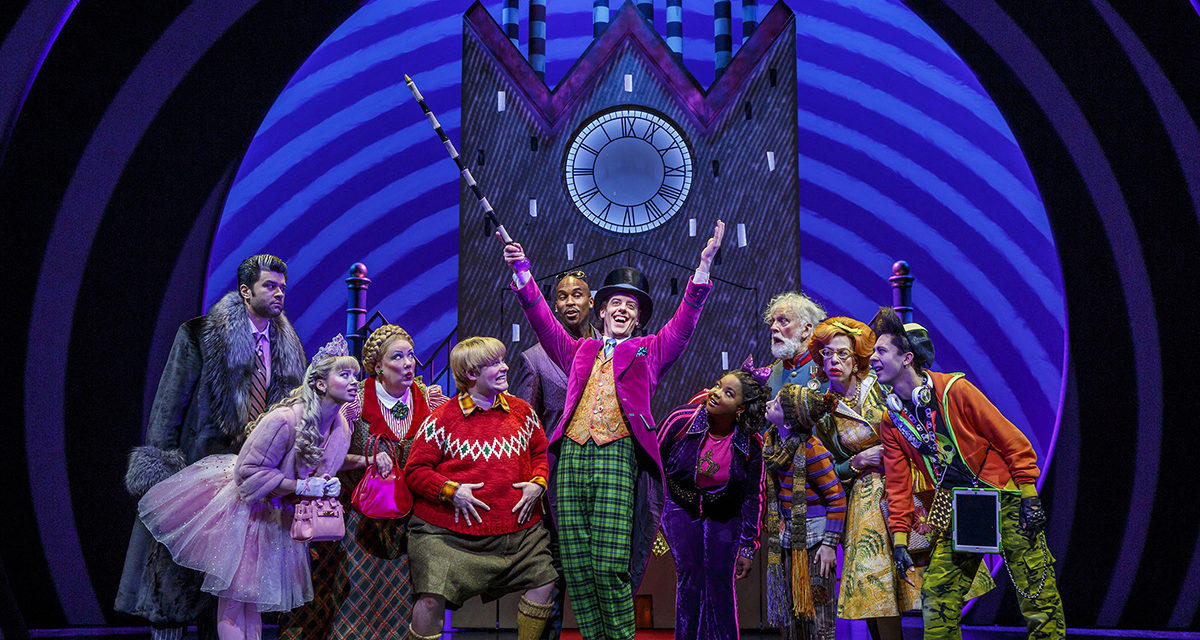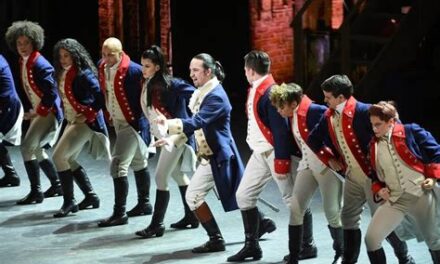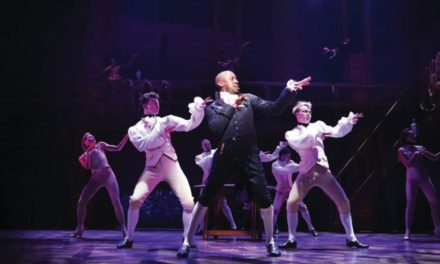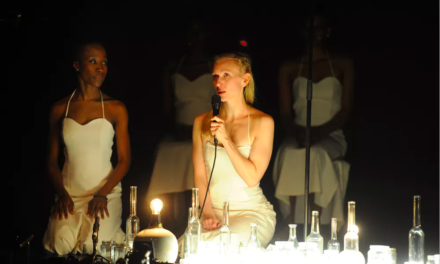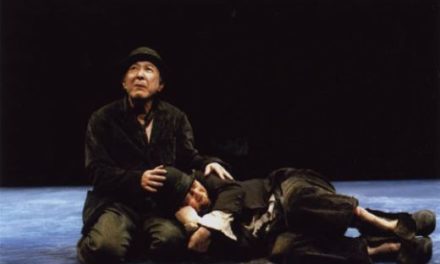My companion at Charlie and the Chocolate Factory, the new Broadway musical adaptation of Roald Dahl’s classic children’s book, was my 9-year-old niece Lily. Lily, unlike me, is an expert on all things Willy Wonka: the original 1964 book and both its movie adaptations—the 1971 version starring Gene Wilder, which I loved as a kid, and the 2005 remake starring Johnny Depp, of which more in a moment.
All through our pre-theater cheeseburgers, Lily expounded on the nuances of Depp’s creepiness (“way more creepy” than Wilder), the ways both films differed from the book, and the reasons why each of the obnoxious kids in the story really deserved their horrible comeuppances. “Especially Violet. She’s a total pain!”
Lily loves Dahl’s subversive edge and has lately been reading the unexpurgated Brothers Grimm. She’s at that age when kids want to know about the primal terrors they’ve avoided before now and see what’s behind the saccharine curtain that corporations and parents use to protect them from the abysses and anarchy in fairy tales and fantasy stories.
Just to clarify, for those in caves or without kids: Wonka, a world-famous chocolatier, fired all his employees years ago because some were industrial spies and retreated to his factory, yet the factory has mysteriously continued to operate. Out of the blue he announces a contest in which kids who find five golden tickets hidden in chocolate bars win a tour of the factory. Sales skyrocket in response, with four tickets acquired by laughably spoiled and selfish kids and one by laughably poor but nevertheless generous and imaginative Charlie Bucket. During the tour, the four brats are duly unmasked and Charlie wins the grand prize, which turns out to be the whole Wonka factory.
Lily and I both liked the musical, which is a major extravaganza backed by deep-pocketed Warner Bros., retooled (with a new director—Jack O’Brien replacing Sam Mendes) after a three-and-half-year London run and now destined to occupy the Lunt-Fontanne Theatre for years regardless of what critics say. A property this famous and pre-branded doesn’t need critical praise to thrive—that is, as long as it has coherence, theatrical inventiveness, and charm of its own.
I felt sure this show had all of that. Then I went home and pulled up some reviews. David Rooney of The Hollywood Reporter called Charlie “perversely charmless” and “aesthetically off-putting.” Jesse Green in New York Times compared it to “a hideous, cheap-looking, melted Whitman’s sampler.” Joe Dziemianowicz in The Daily News said it had “a pale score, a flavorless book and a dearth of eye candy that could have at least made it a spectacle.” Wow. Did I slip into a food coma during the show?
I coulda sworn I heard Lily gasping when a paper-airplane letter Charlie wrote to Wonka rocketed up (on an invisible wire) from his hand to the balcony, and again when Charlie and his grandfather appeared in old-fashioned diving helmets connected to vertical pipes for breathing as projection effects behind made them seem to be walking through water. It seemed to me the whole theater was pulsing with admiring laughter when the Oompa Loompas—the short, supposedly tropical people who operate and live in the factory—turned out to be two-foot-tall, billowy, ethnically indefinite puppet-bodies attached to the heads of dancing actors whose own bodies were masked in black (design by the incomparable Basil Twist). If these things aren’t theatrical invention I don’t know what is.
Now, I don’t want to overpraise Charlie and the Chocolate Factory, whose primary purpose clearly is brand-marketing. It doesn’t have the new-minted flavor of Matilda the Musical. But it is a theatrical achievement of sorts—smart, propulsive, engaging and punctuated with a dozen-plus bouncy new songs (by Marc Shaiman and Scott Wittman) that do succeed in making the familiar plot events feel fresh. The way the show repurposes two Wilder-era songs (“The Candy Man” and “Pure Imagination”) is also very canny. They’re used not just for nostalgia but also to help make the story of Wonka’s personal journey psychologically intelligible for a change.
An important factor, no doubt, is that I never saw the Depp movie. On Lily’s advice, though, I shelled out $3.99 to watch it afterwards online and was stunned at how spectacularly awful it was. Like the Dahl book, it doesn’t introduce Wonka until halfway through. Then it gives him an idiotic back-story about being the son of a fanatical dentist who forbade candy and made boy-Willy wear a ridiculous, round-the-head orthodontal apparatus. Worse, Depp plays grownup Wonka as a catatonic Michael Jackson clone (with perfect teeth) who speaks in fey, bloodless tones, rarely makes eye contact, and has somehow (chemically? surgically?) avoided puberty. “Creepy” is too gentle a word for such an alarming deviant. No parent would let a kid near him.
Watching this astonishing boondoggle made me understand the loathing of the musical’s reviewers. The show copies many basic design and character decisions directly from the movie—costumes, physical characterizations, the look of the factory and its crazy machinery—and if I too had seen the movie first, I’d have resented the zing of recognition and enjoyed the evening less.
As it is, I took the show on its own terms and credited it with a few shrewd decisions. Book-writer David Greig, for instance, made sense of Wonka. The man, introduced right at the beginning, is getting old and his business is flagging. He needs an heir with new ideas and decides to re-enter the world to find one. It’s only after he opens a small candy shop on Charlie’s street, running it anonymously himself, that he hits on the idea for the contest, and by then he has already met the enchantingly sincere Charlie (played by Ryan Foust at our performance) and, we suspect, been won over by him.
Christian Borle plays Wonka with a winking, spunky world-weariness. Erratic, irritable and bristly, with a receding hairline and glasses, he comes off as a safe eccentric because he’s clearly an adult. He enters singing “The Candy Man” as a rueful anti-anthem, his sighs and half-smiles implying that he’s not completely sure the world really ever can “taste good” anymore. He seems to warm to Charlie’s candor and energy despite remaining outwardly aloof and skinflinty.
The point is, Wonka has a simple and plausible action-line now. Moreover, in Greig’s re-telling, mortality becomes truly central to the tale. It isn’t, as in the book and both movies, just a gag—involving, say, Charlie’s grandparents crowded into his house’s only bed, or all the seemingly lethal accidents that befall the naughty kids that turn out to be cartoonish pseudo-dangers.
And speaking of cartoons, some real ones leave a strong beneficial impression on this show. At one point, clips of Bugs Bunny and Daffy Duck flash on a screen, and it occurred to me that Greig, whose book brims over with delight in loony wordplay, may well have taken a cue from the brainy-dumb scripts of Hanna-Barbera. In any case, all of his jokes too are clever enough to keep both kids and their adult chaperones entertained. A few samples: “WONKA: So long, Bucket. Remember, no man waits for time, don’t carp and seize the per diems!” “MRS. TEAVEE: Mr. Wonka – a simple knowledge of geology tells me that’s impossible. WONKA: Well a complicated knowledge of geology would tell you the opposite.”
I suppose it’s true that none of this is all that profound. Nevertheless, the validation of intelligence, language, and wonder does have some value. If Charlie and the Chocolate Factory may be said to have a serious aspiration, it’s in the way it grapples with the always maddening conundrum of how to reach prematurely cynical kids whose innocence has been poisoned by ubiquitous media before they even understand what they’re sneering at. The reason Willy Wonka has to play his cards close to his chest, never giving away what side he’s on until the end, is that he needs to know for sure which kid shares his values. Only Charlie passes the test, and he’s still capable of innocent wonder largely because he’s so poor he’s media-free.
Couched in a show whose tickets start at $79 and go up to $358, that thought may seem a little hollow, but that doesn’t make it worthless.
And hey, I had a test too. It was called “the ride home.” Guess what? Everyone passed. Lily talked to me about the show the whole way and never once asked to play with my iPhone.
This review was originally posted on jonathankalb.com. Reposted with permission. To read the original review, click here.
This post was written by the author in their personal capacity.The opinions expressed in this article are the author’s own and do not reflect the view of The Theatre Times, their staff or collaborators.
This post was written by Jonathan Kalb.
The views expressed here belong to the author and do not necessarily reflect our views and opinions.

